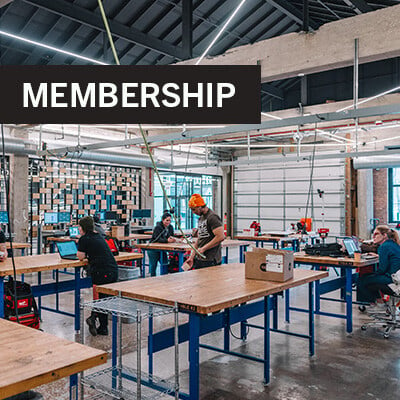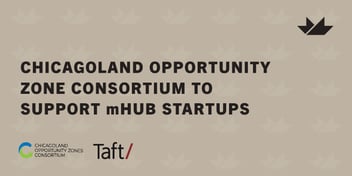As a startup you have one primary focus: fundraising. But what if you could attract fundraising dollars while also fulfilling a mission-driven aspect of your business? Relocating to an Opportunity Zone could be for you. It would allow your startup to spur economic growth in low-income communities while attracting investors seeking tax advantages through qualified opportunity zone funds.
Opportunity Zones are a special economic development program that provide federal tax incentives for investors who invest in businesses located within low-income communities. A Qualified Opportunity Zone Fund (QOZF) is a type of investment vehicle used to finance qualifying businesses within these zones to receive certain tax benefits. To be considered a QOZF, a fund must meet the 90% asset test – that is, 90% of the Fund’s assets must be within a designated opportunity zone, whether in the form or real estate investment or equity in a business.
For startups, operating within an Opportunity Zone doesn't just mean capital infusion—it's a door to engage with local stakeholders, enhance community development, and make a tangible, positive impact on the road to commercialization. With the right preparation and research, startups can leverage opportunity zones for investments while giving back to the communities they're operating within.
Advantages of Investing in an Opportunity Zone Fund
Before tapping into the benefits of an Opportunity Zone, it's important to first understand why Opportunity Zones are attractive to investors. With a QOZF, investors can benefit from capital gains deferral, partial exclusion from taxation on capital gains, and even permanent exclusion from capital gains if the fund is held for a certain period of time.
Let's breakdown the main advantages of investing through a QOZF:
Temporary Deferral of Taxable Income for Capital Gains Re-Invested
If someone were to sell an asset and make income in the form of capital gains, if they re-invest those capital gains into a QOZF within 180 days of the sale, they temporarily do not have to pay taxes on such capital gains.
Exclusion of the Deferred Gain
If held for 10 years, all capital gains taxes on any appreciation from their original Opportunity Fund investment will be excluded.
Social and Economic Impact
Investors are enticed to channel their capital gains into QOZFs not just due to tax incentives, but also the promise of contributing to social betterment.
How to Qualify Your Startup as an Opportunity Zone Business
To become a Qualified Opportunity Zone Business (QOZB), a business must meet the 50% Gross Income Test. There are three safe harbors within the test and the business only has to meet one of them:
- Fifty percent of the services performed (based on hours) for such business by its employees or contractors are performed within the opportunity zone.
- Fifty percent of the services performed for the business by its employees and independent contractors are performed in the qualified opportunity zone, based on the amounts paid for the services performed.
- The core operations and facilities responsible for generating half of the business's gross revenue are located within a QOZ.
Other Considerations for Moving Your Startup to an Opportunity Zone
For startups looking to relocate to an Opportunity Zone, there are many considerations beyond attracting investors.
Opportunity Zones often have more affordable real estate, rental rates, and operating costs which can help businesses save money. Startups need to take into account the existing infrastructure in the area including transportation links, educational opportunities, and access to talent pools. It's also important to research the area and understand any relevant zoning regulations.
The mHUB innovation center in Chicago removes many of these barriers for startups. The membership-based incubator offers cost-effective rent for both co-working and office spaces, as well as access to prototyping labs for product development. The collaborative nature of the community makes sourcing talent and accessing engineering expertise easy. Located within an Opportunity Zone, any startup or business operating there has the potential to become a QOZB.
mHUB has built a supplier network to help startups connect with local, regional, and national manufacturers and being situated within an Opportunity Zone, as well as designated industrial corridor, can help attract industry partners.
Further, its mentor network can help startups navigate their many steps to market, including how to gain designation as a business within an opportunity zone.
Further, startups may find opportunities to engage and collaborate with local community organizations, governments, and other stakeholders to tailor their business plans to aid in the community's development. Startups can also have a direct, positive impact on the community by hiring local talent, developing and repurposing properties within an Opportunity Zone, and engaging in initiatives that support local community needs.
Interested in learning more about how your startup can leverage Opportunity Zones? Join us for an in-person course at mHUB led by the Opportunity Zone experts at Taft Law on November 14th. Register now to secure your spot!






